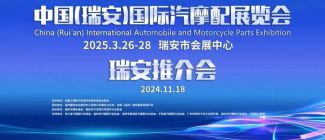Scan QRCode

Decoding industry upgrading and ecological reconstruction, the 2025 New Energy Intelligent Vehicle New Quality Development Forum was successfully held!
On July 15th, the 2025 New Energy Intelligent Vehicle New Quality Development Forum was successfully held in Changchun.
The conference, with the theme of "New Quality Leading the Future of Intelligent Innovation", invites leaders from relevant government departments, experts from Tsinghua University, Harbin Institute of Technology, Jilin University, as well as representatives from vehicle and supply chain enterprises such as Geely, Lantu Automobile, Jiangqi Group, FAW Group, Great Wall Motors, Neusoft Ruichi, Valeo, Horizon Robotics, Xinchi Technology, JD Technology, Lingchong, Ruisheng Technology, ZTE Microelectronics, Geometry Partners, Aodong New Energy, Dongchi New Energy, etc. to attend.
Zhang Chunda, Deputy Mayor of Changchun Municipal People's Government, Zhang Guigang, Deputy Director of Jilin Provincial Department of Commerce, Zhang Yongwei, Vice Chairman and Secretary General of China Electric Vehicle Hundred People's Association, Chen Dezhi, President of Changchun Council for the Promotion of International Trade, Han Baoshuang, Chairman of Bairui International Exhibition Group, and others attended the meeting.
Zhang Chunda, Deputy Mayor of Changchun Municipal People's Government, stated in his speech that the current global technological revolution and industrial transformation are surging, new energy vehicles are developing rapidly, and the world automotive landscape is undergoing deep adjustments and reshaping. Only through open cooperation and collaborative innovation can we win the future. Changchun City is firmly committed to the path of innovation driven development, establishing a 10 billion yuan special fund for the automotive industry and introducing support policies covering the entire industry chain. With FAW as the core, it is constantly seeking breakthroughs in key areas such as "three electricity", intelligent cockpit, and autonomous driving.
Zhang Yongwei, Vice Chairman and Secretary General of the China Electric Vehicle Hundred People's Association, stated that China has achieved lane changing and overtaking in electrification, with the terminal market leading in intelligence, and the industrial ecology becoming increasingly rich. The current core task includes two stage goals: from 2025 to 2030, accelerate the popularization of assisted driving, expand the user base, and cultivate a culture of intelligent driving. At the same time, he emphasized that our goal cannot be limited to the popularization of low-level technologies. We need to quickly propose development goals for L3 and higher level autonomous driving, and countries and enterprises that are the first to achieve the application of L3 and above technologies will have a key advantage. Based on the dynamic judgment of enterprises, 2030 and the next two to three years may be the window period for L3 and L4 to move from pilot to large-scale application.
The main forum will be divided into two sessions, one in the morning and one in the afternoon, hosted by Shi Jianhua, Deputy Secretary General of the China Electric Vehicle Hundred People's Association and Dean of the Automotive Hundred Think Tank Research Institute, and Zhao Zesheng, a specially appointed expert from the China Electric Vehicle Hundred People's Association Intelligent Network Research Institute.
Expert insights, unlocking technological breakthroughs and industry direction
At the meeting, expert representatives shared their innovative ideas in key areas of intelligent vehicles and proposed new ideas for industry development.
Wang Jianqiang, Dean and Professor of the School of Vehicles and Transportation at Tsinghua University, pointed out that currently, intelligent vehicle safety technology is mainly promoted along two paths: one is rule driven, which has the advantages of clear logic and strong interpretability, but faces bottlenecks such as weak generalization ability and difficulty in covering long tail scenes; The second is data-driven, with self-learning ability and good generalization, but there are problems such as "black box" attributes, difficulty in tracing, and insufficient ability to recognize extreme scenarios. Both paths have their own advantages and disadvantages, and it is difficult for them to independently support the evolution of intelligent driving to a higher level. To break through key technological bottlenecks, he proposed the "cognitive driven" approach, which integrates human brain cognition and knowledge experience as inspiration. Through the three major links of perception cognition decision-making, the integration path of rules and data is opened up, achieving accurate perception, deep cognition, and safety decision-making of the system in complex traffic environments.
Cai Wei, a lifetime honorary professor at Harbin Institute of Technology, a national outstanding engineer, and a foreign academician of the Russian Academy of Engineering, mentioned that with the charging system voltage moving towards 1000V or even 1500V, wide bandgap power devices such as silicon carbide have gradually become mainstream, but they also bring problems such as thermal runaway in packaging and high system costs. In the field of motor technology, the current mainstream is permanent magnet synchronous motors, and Tesla has also shifted from induction motors to permanent magnet solutions. He emphasized that electrification+cleanliness is a long-term strategic goal of the country, and the electric drive system, as a core component, must achieve independent controllability. Promoting the development of the "four modernizations", namely electrification, intelligence, low carbonization, and globalization, is the direction of the industry's joint efforts.
Zhang Yongwei, Vice Chairman and Secretary General of the China Electric Vehicle Hundred People's Association, stated that in the era of intelligence, the focus of enterprise competitiveness has shifted to intelligence and AI capabilities. In the future, the proportion of machinery in car costs will decrease from 70% to below 30%, while the proportion of electronics and software will reach 70%. Intelligence and cost will become the primary factors in car purchasing decisions. He believes that the development of intelligent enterprises can be divided into three stages: using AI to assist in research and development and management; Produce intelligent products, such as AI cars; Transform into an AI based enterprise and create a series of AI products.
Professor Lu Dang from Jilin University stated that intelligent chassis is one of the key technologies for intelligent vehicle control, and in the future, intelligent tires and their domain control software will become an important foundation for software defined cars. The tire, as the only component that comes into contact with the road surface, generates tire force through the interaction between the tire and the ground, thereby changing the motion state of the car. Therefore, the tire is the core of the chassis, and tire force is the fundamental cause of car motion.
Car companies argue that diversified technology routes anchor intelligence
Representatives of vehicle manufacturers shared their practices in technology route selection, brand upgrading, and ecological construction, demonstrating the diversified development path of new energy intelligent vehicles.
Lu Fang, CEO of Lantu Automotive Technology Co., Ltd., believes that in the current context of accelerating technological revolution and industrial transformation, new products, technologies, and formats are constantly emerging, and the competitive landscape is becoming increasingly complex. How to break through low-level competition and promote high-quality development in the Chinese automotive industry is a challenge that all enterprises must face. We should adhere to technological innovation and achieve a leap from "competing parameters" to "creating value"; Persist in management innovation and achieve a leap from transactional relationships to partnership relationships; Persist in brand innovation and achieve a leap from single consumption to long-term trust; Adhere to open innovation and achieve a leap from Chinese products to Chinese brands.
Ma Cuibing, Director of Jiangqi Group Holding Company and Deputy General Manager of Jiangqi Group Co., Ltd., stated that the automotive industry is currently in a critical stage of multi technology innovation and multi industry integration development. The doors of traditional cars are closing at an accelerated pace, but new cars, new ecosystems, and new value chains are also emerging at an accelerated pace, presenting an excellent opportunity for Chinese car companies to enter the high-end market. Since Jianghuai Automobile reached a comprehensive strategic cooperation with Huawei in 2019, the two sides have deeply integrated the entire value chain, including research and development, supply chain, manufacturing, sales and services. The Zunjie brand is a typical practice: Jianghuai and Huawei have formed a dedicated R&D and delivery team of over 5000 people, and jointly built the Zunjie super factory. In addition, Jianghuai has partnered with 227 top suppliers to build a world-class supply chain ecosystem and promote breakthroughs in the field of ultra luxury intelligent new energy.
Zhou Shiying, Vice President of FAW Research and Development Institute and CEO of Jiuzhang Platform, proposed that with the rapid evolution of AI big models, in car applications are shifting from traditional software defined cars to "AI defined cars". Since 2024, almost all cockpits and intelligent driving systems have default access to AI models, but it poses significant challenges to the compatibility of underlying chips, OS architecture, and application layers. At present, most vehicle manufacturers have not fully achieved absolute separation of software and hardware. In addition, against the backdrop of tight capital, more and more companies are turning to embodied intelligence. As an early form of "humanoid robots", intelligent cars have natural advantages in embedded systems, neural networks, and AI connectivity.
Pang Shuyi, Deputy Chief Engineer of Intelligent Driving at Great Wall Motors, proposed that as the earliest host factory to layout end-to-end technology, Great Wall anchored the "end-to-end+no graphics" technology solution from the early stages of development and launched the end-to-end combined driving assistance large model SEE. This model adopts a "data-driven+model security+security policy fallback" model, based on the end-to-end large model, and adds a security evaluation network and manual rules for security arbitration to ensure system security; At the same time, the deep fusion of VLA models further enhances the semantic understanding and coupled reinforcement learning capabilities of complex road conditions, generates more human like driving strategies, and optimizes driving experience.
Collaborative exploration of supply chain, reconstruction of new quality and ecological synergy
As an important component of the industrial ecosystem, supply chain enterprises also shared their thoughts on technology empowerment and ecological synergy.
Du Qiang, President and CTO of Neusoft Ruichi Automotive Technology (Shanghai) Co., Ltd., stated that in the past six months, AI has had a significant impact on the entire automotive industry, automotive experience, and core competitiveness of automobiles. In response to the question of whether AI will overturn or reconstruct traditional vehicle operating systems, he believes that AI is an incremental construction of automotive systems, rather than a replacement. China's software supply chain has grown and matured in the field of underlying operating systems, with the ability to quickly adapt chips and electronic and electrical architectures, meeting the high-speed iteration needs of automotive companies. Under the empowerment of AI technology, software development efficiency has been greatly improved, and toolchains and semi automated development have helped lower barriers to entry and enhance human efficiency.
Decoding industry upgrading and ecological reconstruction, the 2025 New Energy Intelligent Vehicle New Quality Development Forum was successfully held!
Valeo China's Chief Technology Officer Gu Jianmin believes that the current automotive industry is facing multiple key trends. In addition to new energy electrification, intelligent driving, and intelligent cabins, in car infotainment systems and personalized visual elements (such as headlights) are becoming increasingly important. Car lights are no longer just lighting tools, but also important carriers for design and information exchange. Behind all these technologies, software is becoming a key force in defining cars.
Decoding industry upgrading and ecological reconstruction, the 2025 New Energy Intelligent Vehicle New Quality Development Forum was successfully held!
Lv Peng, Vice President of Horizon Robotics and Head of Strategy&Intelligent Driving Product Planning and Marketing, believes that intelligent driving is similar to mobile phone base stations, with complex technology but difficult to differentiate in the end, and the core is "rapid iteration". But he reminded that in the industry cycle, it is necessary to balance cost reduction and technological iteration. The industry is not yet mature, and excessive cost reduction will sacrifice user experience and security. Experience upgrading should be promoted through technological iteration (such as computing power improvement).
Zhang Xitong, General Manager of the MCU Product Line at Xinchi Technology, stated that the automotive market continues to expand, and the localization rate of intelligent cockpit and vehicle control chips has become a key focus. In recent years, car companies have actively and spontaneously adopted domestically produced chips, promoting a significant acceleration of the localization process. The supply chain relationship is being restructured, and more and more local chip companies are participating in the early stages of vehicle design, jointly defining products and developing with OEMs and Tier 1 to meet rapid iteration and high-quality requirements.
Zhou Qiang, CEO of Lingchong New Energy Technology Co., Ltd., believes that vehicle network interaction is conducive to alleviating the pressure on the power grid caused by the scale of new energy vehicles and ensuring the stability of the power grid; Assist in the consumption of renewable energy and promote the low-carbon transformation of energy structure; Reduce the use cost of new energy vehicles, accelerate market popularization, promote the upgrading of energy storage industry, improve the new energy industry chain to support the construction of energy Internet, and help achieve the "dual carbon" goal. The current car networking interaction is still in its early commercial stage, but it is accelerating towards scenario based, systematic, and platform based development. The park level energy system will become a key scenario for the implementation of vehicle network interaction.
Sun Xuejing, Chief Scientist of Ruisheng Technology, stated that with the rapid evolution of intelligent cockpits, in car acoustics is transforming from an "auditory system" to a core technology support for building a "third space". Acoustic systems are no longer just about 'hearing', but are the underlying support for human vehicle interaction experience, active safety, and even ecological collaboration
Zhang Xianhong, Chief Technology Officer of Shanghai Geometry Partner Intelligent Driving Co., Ltd., believes that only when all day and all-weather safe intelligent driving moves from luxury car privileges to national standard, can new quality productivity achieve the universal popularization of high-end technology. The software and hardware integrated solution of the heterogeneous information fusion perception technology path of "vision+4D imaging radar" will continuously improve the safety performance of intelligent assisted driving systems, allowing more affordable passenger and commercial vehicles to enjoy a more reassuring and stable driving experience, accelerating the arrival of the era of inclusive and safe intelligent driving in China.
The 2025 New Energy Intelligent Vehicle New Quality Development Forum is not only a feast for ideas, but also showcases the innovative vitality and diverse paths of China's new energy intelligent vehicle industry, providing new ideas for promoting technological collaborative innovation and strengthening ecological integration.
AMS2024 Exhibition Guide | Comprehensive Exhibition Guide, Don't Miss the Exciting Events Online and Offline
Notice on Holding the Rui'an Promotion Conference for the 2025 China (Rui'an) International Automobile and Motorcycle Parts Exhibition
On September 5th, we invite you to join us at the Wenzhou Auto Parts Exhibition on a journey to trace the origin of the Auto Parts City, as per the invitation from the purchaser!
Hot Booking | AAPEX 2024- Professional Exhibition Channel for Entering the North American Auto Parts Market
The wind is just right, Qianchuan Hui! Looking forward to working with you at the 2024 Wenzhou Auto Parts Exhibition and composing a new chapter!
Live up to Shaohua | Wenzhou Auto Parts Exhibition, these wonderful moments are worth remembering!
Free support line!
Email Support!
Working Days/Hours!





